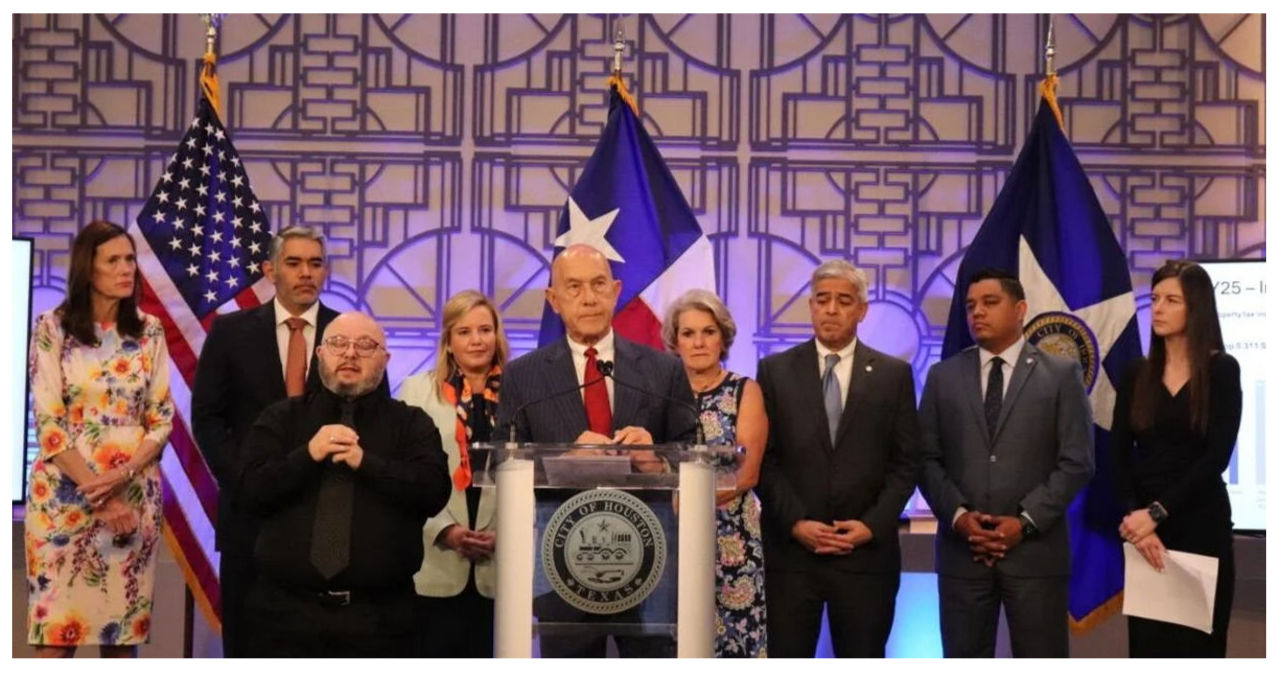Houston’s newly elected Democratic mayor, John Whitmire, is actively undoing the policies implemented by his predecessor. He is placing a renewed emphasis on combating crime and is determined to present a budget that does not burden the residents with additional taxes or fees.
In a recent proposal, Whitmire unveiled a budget of $6.7 billion on Tuesday, which manages to address a $160 million deficit without resorting to new taxes or fees. Remarkably, this budget even maintains current services, making it larger than budgets of certain states.
During a news conference with city council members, Mayor Whitmire acknowledged the challenging financial situation that she inherited when she took office just five months ago. The projected budget gap for Fiscal Year 2025 was a staggering $160 million. However, with a combination of recurring expenditure reductions and drawing from the fund balance, they were able to close the gap. Despite this achievement, Mayor Whitmire emphasized that there is still much more work to be done in order to address the financial challenges facing the city.
Whitmire acknowledged the “years of the city’s financial deficits” that he inherited and outlined his plan to address them. His strategy involves implementing city-wide efficiencies and conducting a comprehensive review to identify cost-saving measures.
Both Mayor Eric Johnson and Whitmire share a common priority: promoting efficiency and avoiding unnecessary tax hikes. However, while Whitmire has been successful in his efforts, Johnson faced challenges in convincing the city council to not raise taxes and eventually switched parties to become a Republican. Both leaders believe that city governments can find alternative solutions to budget issues rather than solely relying on tax increases.
Dallas and Houston, both Democratic-led cities, bear the highest taxpayer burdens among the largest cities in Texas.
Whitmire’s budget proposal does not include any new taxes or fees, but it also does not involve any spending cuts. The proposed budget of $6.73 billion for all funds is $442 million higher than the previous fiscal year, representing a 7% increase.
The budget increases aim to prioritize funding for public safety staffing, which includes covering the costs of five cadet classes for the Houston fire and police departments. These departments have been grappling with staffing shortages, and this allocation of funds addresses that issue. Furthermore, this budget follows through on a campaign promise made to the residents of Texas’ largest city, who have been affected by high crime rates and limited or failing public services.
Mayor Whitmire’s fiscal 2025 general fund budget is set at $3.03 billion, which reflects a 2.1% growth compared to the previous fiscal year’s budget of $2.97 billion. This increase is primarily aimed at accommodating a 3.5% pay raise for Houston police officers and addressing the additional expenses resulting from the collective bargaining agreement with the Houston Fire Department. Notably, the agreement was achieved thanks to the efforts of Whitmire, who sponsored the bill that Governor Greg Abbott signed into law during his tenure in the state legislature.
In less than two months since taking office, Whitmire successfully resolved an eight-year conflict between his predecessor and HPD’s union by negotiating a groundbreaking agreement.
After discovering that the Houston Police Department had failed to investigate over 264,000 crime reports, Whitmire took immediate action by appointing an independent panel to supervise the internal investigation conducted by HPD. As a result, the chief of HPD was compelled to step down within a span of two months.
According to Whitmire, Houston is currently encountering numerous challenges. He emphasizes that although they are striving for efficiency and cost savings, it is essential to acknowledge the limitations on their revenues. Unlike other major cities in Texas, Houston faces three revenue constraints. These include a locally imposed revenue cap, a state cap, the absence of dedicated revenues for solid waste operations, and a lack of support from a city-owned utility.
In addition, his plan involves collaborating with other levels of government and evaluating the delivery of services and associated costs. He aims to explore feasible adjustments to the revenue model to ensure its sustainability.
The approval of the budget by the city council is a necessary step before the commencement of the new fiscal year on July 1.



